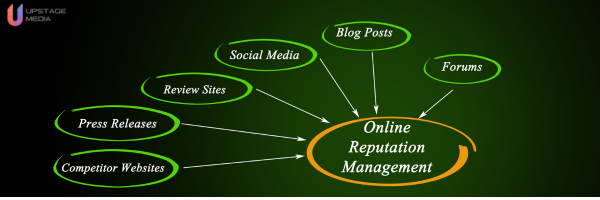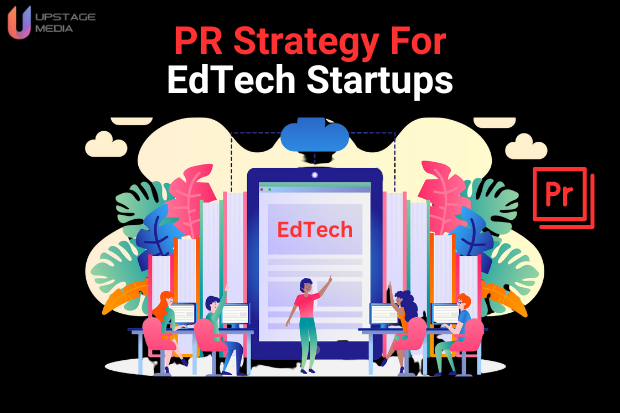Table of Contents
Recently updated on April 24th, 2024
Having a strong public relations (PR) strategy is crucial for success in the fast-paced and constantly changing world of education technology (EdTech) businesses. For EdTech enterprises, public relations (PR) is a potent tool for raising brand recognition, establishing credibility, engaging with their target audience, and setting themselves apart in a crowded industry.
The various components of a thorough PR strategy for EdTech startups will be covered in this article, including identifying the target market, developing persuasive messages, leveraging media relations, utilizing influencer marketing, establishing thought leadership, producing interesting EdTech PR content, utilizing digital PR tactics, managing online reputation, and measuring PR success.
EdTech firms may increase their exposure, draw users and investors, and eventually have a substantial impact on the market by appreciating the value of PR and putting these ideas into practice.
1. Importance of PR for EdTech Startups
An important factor in the success of EdTech firms is public relations (PR). It promotes positive connections with diverse stakeholders, develops trust, and helps to increase brand recognition. PR enables EdTech businesses to effectively market their distinctive value propositions, garner media attention, draw in investors, and interact with their target market. In a cutthroat industry, an effective Edtech PR strategy may considerably aid in the development and success of EdTech firms.
2. Target Audience and Key Messages
Startups in the EdTech space must determine their target market in order to create a successful PR strategy. This comprises learners, guardians, educators, academic institutions, decision-makers in politics, and prospective investors.
Crafting important messages that resonate with the target audience requires a thorough understanding of their requirements, goals, and pain areas. The key themes should emphasize the distinctive qualities, advantages, and effects of the EdTech solution, focusing on how it tackles particular educational difficulties and enhances learning results.
3. Compelling Storytelling for EdTech Startups
Storytelling is a potent tool that EdTech firms may use to capture their audience and set themselves apart from the competition. Stakeholders may be emotionally engaged by creating a captivating story that highlights the founder’s journey, the motivation for the product, and the beneficial effects it can have on education. Building credibility and trust involves sharing success stories, testimonials, and case studies of students or instructors who have benefited from an EdTech solution.
4. Leveraging Media Relations
A key component of the PR strategy for EdTech firms is media relations. In the education and technology industries, building relationships with journalists, reporters, and industry leaders may lead to beneficial media coverage. To gain favorable press, startups should locate appropriate print and online media channels and submit interesting press releases and articles. Increased exposure and credibility can result from interaction with journalists and the delivery of timely and correct information.
5. Influencer Marketing for EdTech Startups

For EdTech firms, influencer marketing is a successful PR strategy for reaching their target audience through reliable sources. Establishing connections and collaborations in the EdTech sector may be facilitated by identifying important bloggers, vloggers, social media celebrities, and educators. Startups may increase their brand recognition and encourage user adoption by utilizing the authority and reach of these influencers. Influencers’ perceptions and levels of confidence in the EdTech solution can be greatly influenced by enlisting their support.
6. Establishing Thought Leadership
For EdTech businesses to portray themselves as leaders in the field and innovators, thought leadership is crucial. Founders and senior executives should appear on panels at conferences and attend events in their sector, a digital PR agency can help firms with that.
Establishing credibility and gaining the interest of the media, possible investors, and the target audience may be accomplished by publishing thought-provoking articles, white papers, or research studies on pertinent educational themes. Startups may set themselves apart from rivals and acquire a competitive edge by exchanging insightful knowledge and experience.
7. Engaging PR Content for EdTech
To draw in and hold the interest of their target audience, EdTech businesses must create compelling PR material. Press releases, blog entries, infographics, videos, and social media postings that showcase the special qualities and advantages of the EdTech solution fall under this category. Startups should concentrate on providing their audience with useful and shareable content that informs, educates, and entertains them. Engaging content improves user impression of the brand and promotes user participation, increasing brand loyalty and word-of-mouth recommendation’s
8. Digital PR Tactics for Visibility
EdTech firms must use a variety of digital PR strategies to increase their awareness in the modern world. This involves search engine optimization (SEO) of their website, content marketing, guest blogging, and obtaining backlinks from trustworthy educational websites. To effectively reach their target audience, startups can also take part in relevant online groups and forums, make contributions to instructional podcasts, and use social media marketing.
9. Online Reputation Management

For EdTech firms, having a favourable online reputation is vital and for that it is necessary to have a digital PR agency. The perception of the brand can be dramatically impacted by unfavourable comments or reviews. A proactive approach to monitoring and responding to consumer feedback, timely responses to questions and concerns, and the promotion of pleasant user experiences are all part of implementing an online reputation management plan. Startups may develop a solid online reputation that inspires confidence in the target audience by regularly producing a high-quality product and offering first-rate customer service.
10. Measuring PR Success
In order to assess a PR strategy’s efficacy and make data-driven adjustments, it must be measured for success. Startups in the edtech space should set up key performance indicators (KPIs) that are in line with their PR goals, such as media mentions, website traffic, social media engagement, lead generation, and conversion rates.
The effectiveness of PR activities may be determined by monitoring and analysing these indicators using programmes like Google Analytics and social media analytics platforms. The PR strategy is improved and future initiatives are optimised with the aid of routine monitoring and analysis.
Conclusion
The success of EdTech firms depends critically on a well-executed Edtech PR strategy. EdTech firms may improve their brand awareness, create credibility, interact with their target audience, and set themselves apart in the crowded market by realising the value of PR and putting the numerous elements covered in this article into practise.
EdTech startups can successfully navigate the PR landscape and accomplish their business objectives by identifying the target audience, creating persuasive messages, utilising media relations, influencer marketing, thought leadership, engaging PR content, digital PR tactics, online reputation management, and measuring PR success. If EdTech firms embrace PR as a crucial component of their entire strategy, they may increase their exposure, draw consumers and investors, and have a substantial influence on the EdTech market.
Frequently Asked Questions
1. What is PR in the tech industry?
In the technology sector, public relations (PR) include controlling and influencing how the general public views tech firms, goods, and services. It focuses on establishing connections with the press, influencers, clients, and other stakeholders in order to produce favourable press, boost brand reputation, and spur company expansion.
2. What do EdTech companies do?
EdTech businesses create and provide platforms, tools, and solutions for educational technology that improve teaching and learning. Online learning platforms, instructional applications, virtual reality technologies, individualised learning software, and digital material for educational purposes can all be part of these solutions.
3. Why is PR important for EdTech startups?
For EdTech startups, PR is crucial because it promotes brand recognition, legitimacy, and trust in a cutthroat industry. It enables entrepreneurs to persuasively present their value propositions, garner media attention, interact with their target market, and position themselves as sector authorities.
